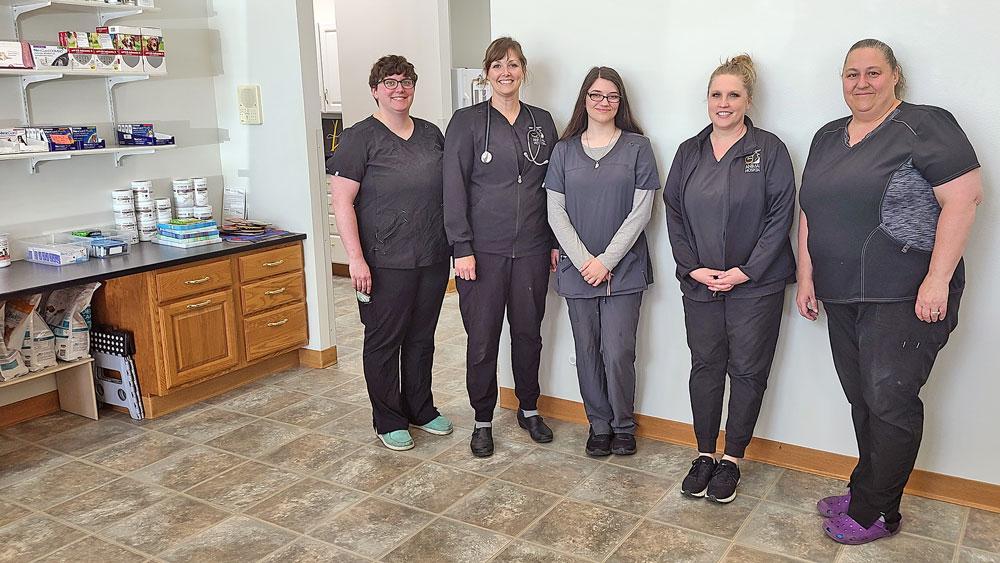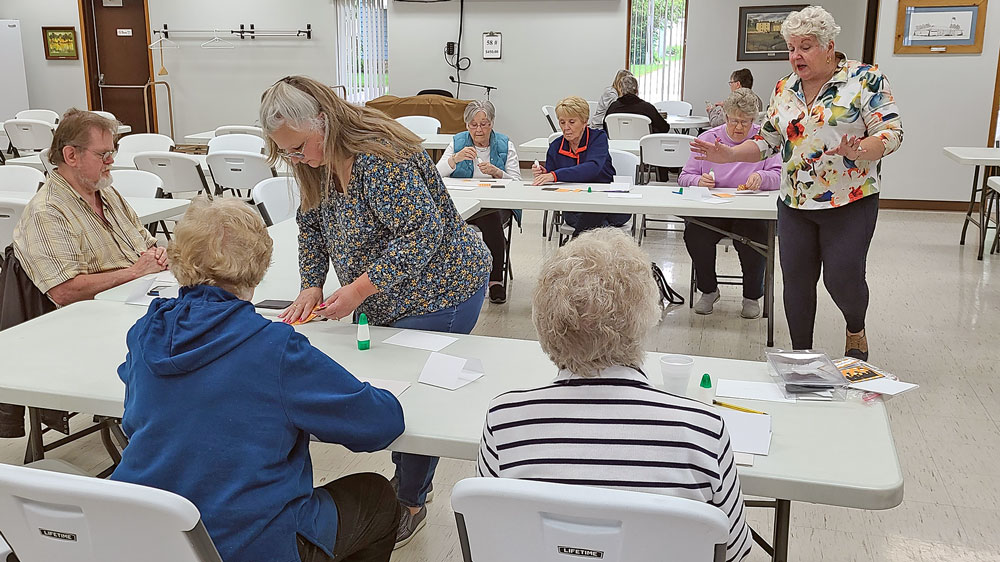Floyd County ambulance funding meeting ends unexpectedly
By Bob Steenson, bsteenson@charlescitypress.com
A special meeting of the Floyd County Medical Center Board of Trustees requested by the chair of the county Board of Supervisors to discuss ambulance service funding ended abruptly Tuesday morning without reaching any conclusions or agreements.
At issue is the annual subsidy for service provided by AMR ambulance, who should pay for it, and whether continued service from the private company is the best option going forward. Floyd County and Charles City have a contract with AMR to provide services, in return for an annual subsidy that the city and county split.
The Medical Center Board of Trustees meeting grew more and more heated between the trustees and Board of Supervisors Chair Mark Kuhn until, more than an hour in, trustees interpreted a remark made by Kuhn as accusing them of holding a “secret meeting,” potentially in violation of the Iowa Open Meetings Law.
Members of the Board of Trustees quickly voted to adjourn the meeting and left the Veterans Room at the Medical Center, where the meeting was being held.
Kuhn said after they left that he was not talking about any meeting that the trustees had held, but about private meetings of members of Charles City staff, elected officials, Medical Center executives and others to discuss costs and options for starting a private ambulance service.
Meetings by that group do not fall under the Iowa Open Meetings Law because there is not a quorum present of any public body. Still, Kuhn has criticized them for not meeting in public and has declined to take part in their meetings.
“Of course any reference was not to this board,” meaning the trustees, Kuhn said after the meeting had been adjourned.
Kuhn had made a statement at Monday morning’s Board of Supervisors meeting that the Medical Center trustees wanted to “renege” on the third year of an agreement to help Floyd County and Charles City pay the AMR annual service subsidy, and that the trustees would not agree to contribute if another three-year contract with AMR was agreed to.
Starting out the Board of Trustees meeting Tuesday morning, Medical Center CEO Dawnett Willis said she wanted Kuhn to retract his statements, because the trustees had not recently discussed or made any decisions on AMR funding.
Kuhn’s said his statements were based on what he had heard at a Floyd County Ambulance Commission meeting that had been held July 16, where Willis, who is a member of the Ambulance Commission, and Trustee Chair Ron James, who was in the audience, made comments. Kuhn is also a member of that commission.
Willis said she had not made any proposal at that meeting and had said she could not speak for the trustees, but had said as CEO of the Medical Center she would not advise the trustees to commit to future AMR funding without even knowing what the amount of that funding would be.
James said he had questioned why Kuhn was asking the Medical Center to agree to continue paying toward another AMR three-year contract if a proposed emergency medical services (EMS) support levy is passed in the county.
James raised that question again Tuesday morning, saying if the levy is passed by voters the city and county cost would go to zero, but the Medical Center was being asked to continue contributing more than $100,000 a year.
Kuhn said whether the subsidy was coming out of the city and county general funds or through an EMS levy, it was property tax money either way. The $450,000 might not cover future costs of AMR service as well as supporting other EMS services in the county, and it would be a good idea to build up at least a small reserve so they could have options in the future.
Kuhn said his proposal would also make it more likely that voters would support an EMS levy, if they knew part of the AMR costs were being paid by the Medical Center out of its revenues, rather than through taxes.
The Medical Center benefits from ambulance service and should share the cost, he said, adding that the Medical Center could not be “full-service” without ambulance service.
Kuhn said the Medical Center has an annual budget of more than $52 million and an unrestricted end of the year fund balance of more than $23 million, several times what the year-ending balance is of the city and county combined.
Some of the trustees said he can’t compare governments to a business, that they are required to maintain a certain number of days cash on hand, and that their new hospital and clinic addition project also had requirements regarding maintaining financial reserves.
The Floyd County Board of Supervisors at its meeting on Monday, July 23, had passed a proposal introduced by Kuhn that a question should be put on the Nov. 5 general election ballot asking Floyd County voters to decide on a five-year $450,000 annual EMS property tax levy to help fund the annual AMR service subsidy.
That was not an official action to place the question on the ballot, and a decision on that must be made by Aug. 28.
Kuhn said at the trustees meeting that he was sorry if there was a misunderstanding about the Medical Center paying the final year of the current agreement to help subsidize the AMR cost, and he asked the trustees if they would commit to paying that and get that question out of the way.
The trustees who responded said “no comment,” although some said no proposal had been made to not honor the agreement.
Craig Carstens, Medical Center chief financial officer, later in the meeting said the supervisors, the City Council and the Board of Trustees had all signed an agreement regarding the payments for the current AMR contract, and they would honor it.
The second part of the proposal the supervisors approved Monday would ask the Medical Center to continue contributing more than $100,000 per year toward that subsidy in a likely new three-year AMR contract that would begin July 1, 2026.
The trustees had agreed to do that for the current AMR contract when the cost of the subsidy more than doubled from $200,000 in the last year of the previous three-year contract, to $415,000 in the first year of the current three-year contract, which will expire June 30, 2026.
Several of the trustees said the current agreement to reimburse the city and county for part of the subsidy had been made with the understanding that work would be done on creating a public ambulance service, because paying the continually increasing cost of the AMR subsidy was not sustainable, and they were disappointed that effort had apparently been abandoned.
Kuhn said county voters would not support the up to $776,000 annual subsidy for 15 years that had been proposed to help fund a new ambulance service, and he would not put that question on the ballot.
After the meeting was abruptly adjourned and most of the trustees left, Willis, James and Carstens remained for a while in the room with Kuhn.
“You keep misquoting, misspeaking,” Willis said to Kuhn. “It’s not accurate. It’s confusing.”
James said, “I think, Mark, you’ve got a few of your facts mixed up.”
Kuhn said, “I’m sorry you decided to close the meeting abruptly and not hear the final remarks and the final proposals that we have, because we are certainly trying to find a solution.”
He said not finishing the discussion was not in the best interest of the hospital or the citizens of the county.
Kuhn said he was also disappointed there had not been a chance to allow public comment, because a lot of people are concerned about this topic and people had been viewing or listening to the meeting remotely.








Social Share